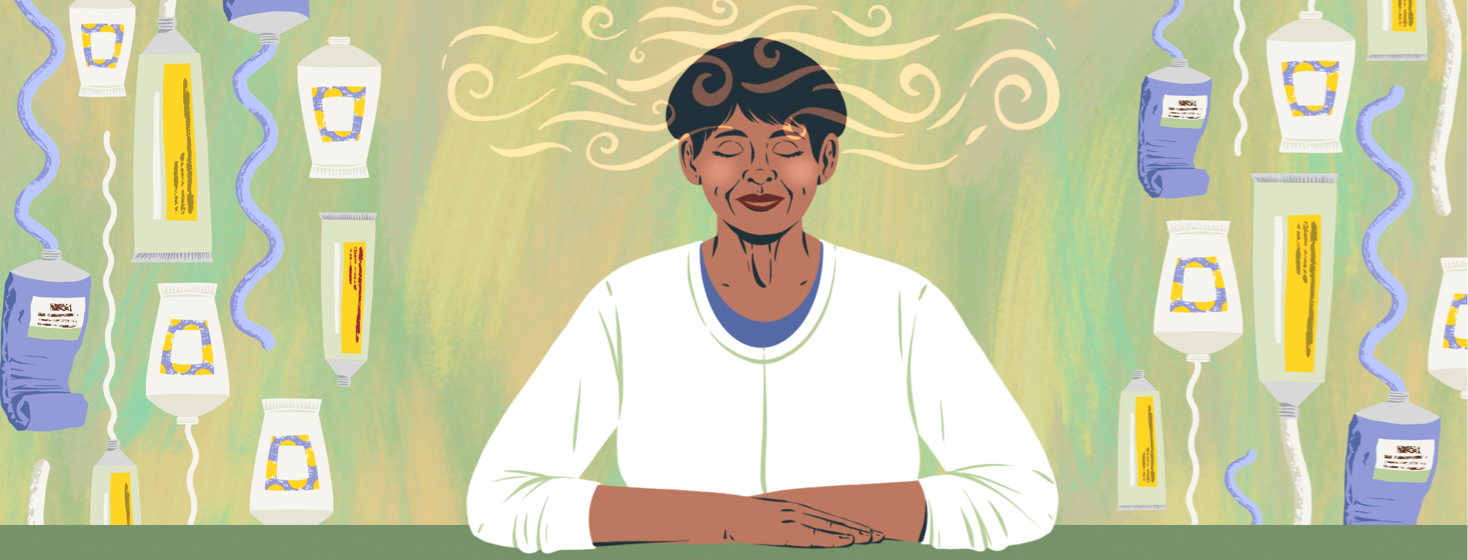Mind Over Medicine?
Do you believe your eczema will never get better? That there is no cure or even a treatment that will work for your particular pain and itch? It may be a self-fulfilling prophecy. But what if you truly believed in the newest product or form of treatment?
Am I experiencing the placebo effect?
I wish I were more gullible or at least a bit less skeptical. If a friend says such and such a supplement worked beautifully, or this product or action improved their mood, their skin, and life, could it be the “placebo effect”? If the latest YouTube influencer endorsed a product, and I seriously believed using that product would do something to improve my life, then just that belief alone could help. But after research shows an anecdotal result is not realistic or not proven by science, can there still be a placebo effect? I would not think so, but science says yes, there can be, slightly.1
Did "mind over matter" fit the times?
Growing up in the fifties, my father’s belief in natural remedies and mind over matter was not the belief of the time. At that time, people were moving away from believing in our grandparents’ time-honored remedies to the newest, latest product or treatment. If it was shown on that new invention, television, it must be true. Groan. Just as on the internet today.
I still remember my father’s instructions to eat oranges if you felt you were coming down with a cold or to drink a big glass of water if you had a headache because you were probably dehydrated. If I was cold, he said to run warm water over my wrists. It was the fastest way to get warm. If you believed something worked, it usually did. I knew my father was the smartest man in town, so if he said something would make me feel better, I believed him, and I did feel better.
Can mindsets influence health outcomes?
We still don’t know the full extent of the power of our brains, although scientific researchers are continually working on it. They’ve found that patients’ positive treatment expectations can reduce disease symptoms and enhance treatment efficacy, positively affecting health outcomes. In contrast, negative treatment expectation is associated with increased symptomatology, diminished treatment effect, and less beneficial health outcome.2
Does it work with eczema?
When people say just don’t think about the itch, it makes me think about it even more. But then, if you tell me putting a certain thing on it, no matter how outrageous, is going to help, and I believe you, it will probably help. “I believe you” is the important part. Showing me the results of more than one positive clinical trial goes a long way.
If I tell myself my skin is not itchy, it’s still itchy. If I tell myself often enough that my skin feels good, will it eventually feel good? Perhaps I haven’t tried often enough. Or had enough positive reinforcement from “those who know.” Some say meditation or mindfulness practice can help, and I’ve been thinking I may need to look more closely into these practices. Something has to work. I just need to find what it is.

Join the conversation